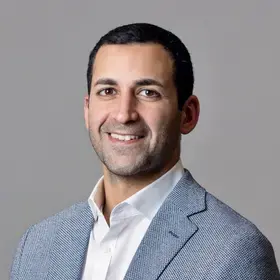"When we’re seized by something that needs to be shared, it’s so crucial for someone to be there to receive it," M.S. in Narrative Medicine alumna Annie Robinson told The Atlantic earlier this year, "because to share it is to let it go." Robinson, who graduated from Columbia's program this year, became interested in Narrative Medicine due to her own experiences as a patient and, later, her experiences as a full-spectrum doula. She worked with New York's Doula Project, supporting women who were terminating pregnancies or experienced miscarriages. She has characterized the emotional experience as heavy, feeling saturated, but also feeling "lit up and glowing." And now that she has graduated from the Narrative Medicine program, she will continue to help patients make meaning out of difficult transitions by pursuing chaplaincy at Harvard Divinity School.
She spoke with Columbia about Narrative Medicine, working as a doula, and crafting meaning out of embodied experiences.
What led you to Narrative Medicine?
I've always considered myself a writer. I've also been a patient for much of my life and have been very involved in health care advocacy and activism. For me, growing up navigating the health care system and loving to write – the two ultimately came together with Narrative Medicine. Writing is how I came to understand my body and my illnesses.
As an undergraduate, I had gone to NYU's Gallatin School of Individualized Study. I created a major that combined medical anthropology, social work, writing, expressive arts, and psychology. I called it Stories of Self: Realization, Empowerment, and Well-Being. Essentially, I was assembling a Narrative Medicine program on my own before I realized that it was a field of study.
A mentor of mine directed me to Rita Charon's program at Columbia and said that it seemed like the perfect fit. And, indeed, it was.
When did you enroll in Narrative Medicine, and how did you balance school with your work as a doula?
I graduated from NYU in 2009. I didn't start at the Narrative Medicine program until 2011. I became a doula back in 2008 and did that for about two years, attended to a family crisis for about a year, but then came back to it.
When I resumed my work as a doula, it was not in the context of helping women give birth. I was working with women who were terminating pregnancies or had had miscarriages. I supported them through those loss experiences with the same principles of continuous, compassionate support – but in a different context.
I was doing the doula work while also working as a full-time nanny in Brooklyn. It was difficult to balance school and work, but I was able to attend the Narrative Medicine program part-time.
What is it like to be a doula in that context?
I loved it so much. The work was comprised of these strangely fleeting encounters. Unlike with a birth client, we don't meet the clients beforehand. But we'd meet them right before the procedure, spend time with them in the waiting room, and remain with them through the procedure in the clinic room. Then we would support them in the recovery room afterward and say goodbye. And that was it.
These women had a huge range of experiences. Some were chatty and funny, others were serious and quiet. But the depth of those connections was profound.
You're going to Harvard Divinity School to pursue hospital chaplaincy. Can you tell me about that?
What I want to do at Harvard Divinity School is to apply my experience and passion as a doula to help people through difficult transitions – be that illness or death. It complements my Narrative Medicine quest to make meaning out of embodied experiences.
This is what I had already been studying: meaning-making, being present, bearing witness, and now figuring out how to bring spirituality to the process.
Is there anything else you wanted to mention about Narrative Medicine, your career, or your experience at Columbia?
One of the things that's really important to recognize – for people who are either in the program or who are interested in the program – is that there isn't a clear-cut path. Narrative Medicine doesn't lead to a specific job; rather, there's a variety of ways to apply your knowledge.
That can be daunting, but it can also be thrilling. You get to be creative and bold in how you envision your path.


